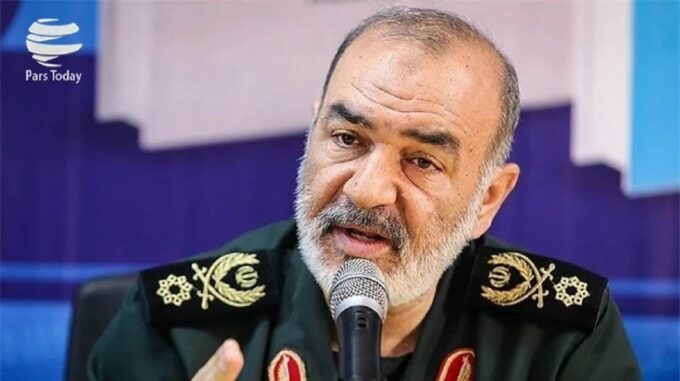Deep Analysis: Media Reports the Elimination of the IRGC Commander During Israeli Strikes on Iran

On the night of June 12-13, Israeli military forces carried out a large-scale strike on Iranian territory, resulting in the elimination of one of Iran’s most influential and authoritative military leaders — Major General Hossein Salami, who headed the Islamic Revolutionary Guard Corps (IRGC). Information about this extraordinary operation appeared in sources citing Iranian media and has significant implications for regional security and the military-political situation in the Middle East. According to CNN reports, the leader of the IRGC, Major General Hossein Salami, was one of the most influential and secretive figures at the top of Iran’s power structure. His role in Iran's security system was crucial — he controlled the development and deployment of ballistic missiles, commanded interstate operations in the region, and served as a key link between military structures and political leadership. Reports indicate that he directly reported to the country’s Supreme Leader, Ayatollah Ali Khamenei, highlighting his strategic importance for Iran’s foreign and internal policy. Under Salami’s leadership, Iran carried out a series of strikes against Israeli territory in April and October of the previous year, deploying drones and missile systems. These attacks marked the first direct military assault by Iran on Israeli territory, significantly increasing regional tensions and signaling Iran’s military capacity and resolve. What exactly preceded this tragic event? On the night of June 12-13, Israeli security forces conducted a special operation — a so-called “preventive strike,” aimed primarily at weakening and neutralizing Iran’s nuclear programs and military facilities. Preliminary information suggests that several key infrastructure objects related to Iran’s strategic national security goals were targeted. Overall, the elimination of Salami is not only a blow to a single individual but also a serious signal to Iran’s military structures and political leadership. It is important to emphasize that Major General Salami was not just a commander — he was a strategic brain and symbol of Iran’s military strength, directly responsible for implementing the most critical operations and trends in the region. Considering that this strike occurred in the context of intensified Israeli-Iranian confrontations, it can be predicted that the consequences of this operation will reflect on Iran’s future policies regarding regional security, including possible measures related to strengthening military capabilities or adopting new deterrence tactics. In general, this event marked a new stage in the conflict, with unpredictable consequences for Middle Eastern stability and future relations between Israel and Iran — two regional giants whose struggle for dominance has been ongoing for decades. Only time will show how this step will influence the balance of power or lead to a new wave of escalation.

